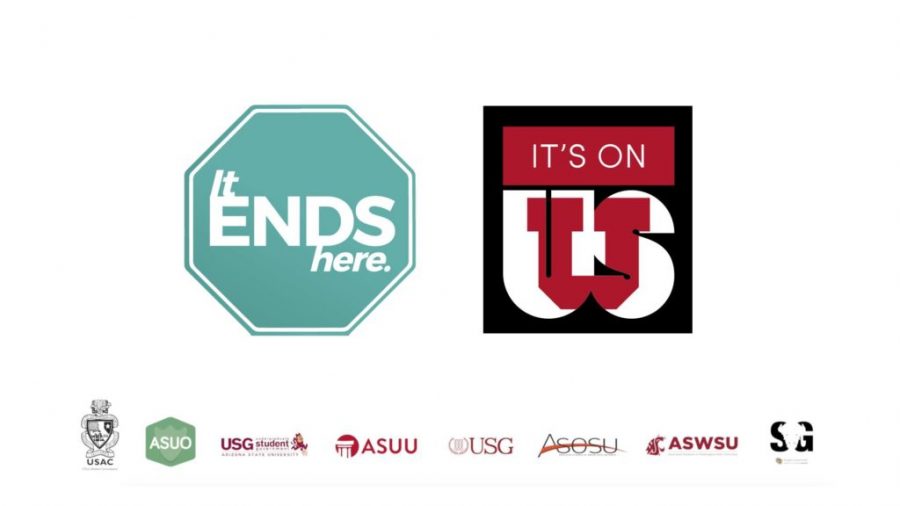The U has come together with the rest of the Pac-12 to create a campaign to bring awareness to sexual assault on university campuses. The campaign, “It Ends Here” aims to teach students how to prevent sexual assault and encourage support for victims of sexual assault.
At the annual Pac-12 leadership summit held in Washington D.C., student government representatives from all 12 schools decided that sexual assault was the number one issue their campuses were facing. They resolved to spread awareness of sexual assault throughout the year instead of only discussing it in April, which is Sexual Assault Awareness Month. As part of a cooperative effort, ASUU came together with the other student governments to create a video addressing the issue.
“It Ends Here” is taking the movement to end sexual assault on college campuses a step further than “It’s On Us”, a campaign that many students are already familiar with.
“I was fortunate to meet the campaign manager [of “It’s On Us”], Kristin Avery, at the Presidential Leadership Summit in Washington D.C. where I was able to bring back new ways of reaching students on the sensitivity of sexual assault,” said Jack Bender, ASUU Student Body President. “The main point we are trying to get through with this video is that anyone can step in and stop sexual assault. It may be a friend or even just a bystander who notices.”
According to the National Sexual Violence Resource Center, one in five women and one in sixteen men are sexually assaulted while in college. More than 90 percent of sexual assault victims on college campuses do not report the assault.
“ASUU is trying to reach students to make sure awareness is high so that all students can help put an end to sexual assault,” said Bender.
ASUU had a table at Library Plaza for the “It’s On Us” and “It Ends Here” campaigns Oct. 24-26. Students who stopped by to sign a pledge received an “It’s On Us” shirt.
In signing the pledge, students make a personal commitment to help recognize sexual assault, identify situations in which sexual assault could occur, intervene in situations where consent has not been or cannot be given and create an environment in which sexual assault is unacceptable and victims of sexual assault are supported.
Students who are victims of sexual assault have many resources available through the U.
“Depending on how recently the incident has happened can determine the way a student can handle it,” said Danielle Fetty, a mental health intervention specialist.
Within hours of a sexual assault incident students should go to the ER or Rape Recovery Center. Students then have the option of visiting the U’s Counseling Center or the Center For Student Wellness, both of which are located on campus in the Student Services Building.
@Kelsey_Kenyon


